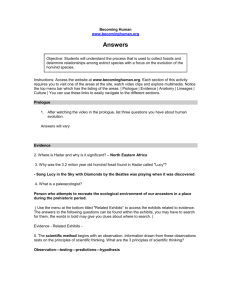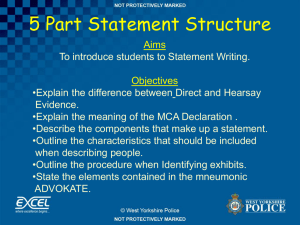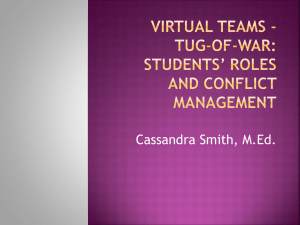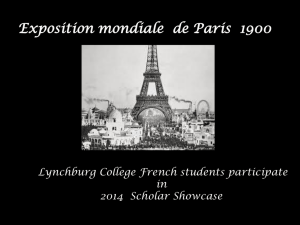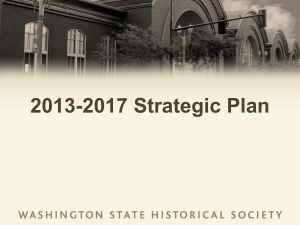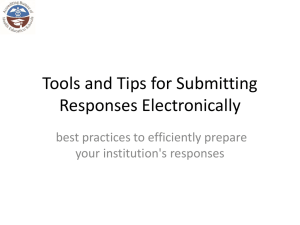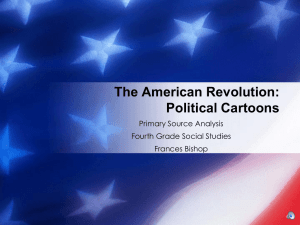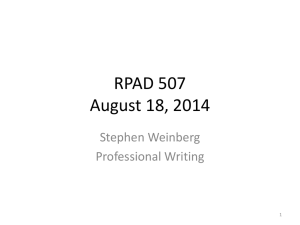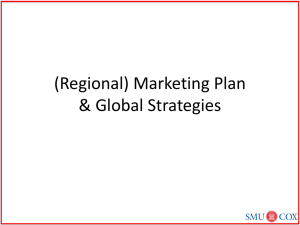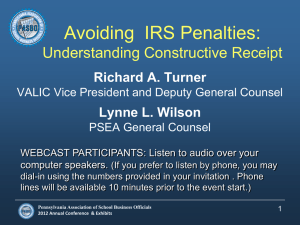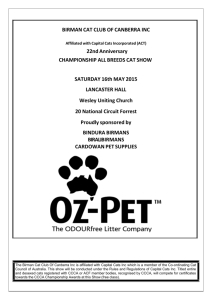Vanderbilt Library Renovation
advertisement
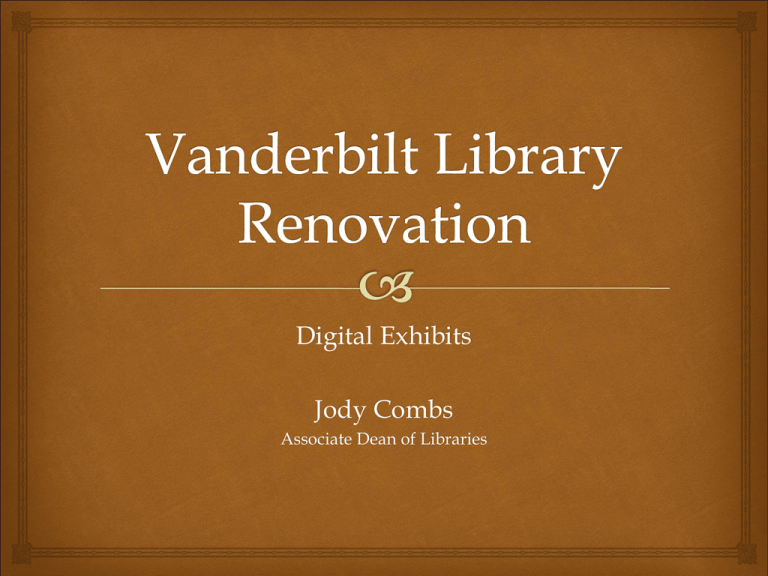
Digital Exhibits Jody Combs Associate Dean of Libraries Case for Renovation Repeated surveys, focus groups, and interviews confirm what we already new: Central Library was perceived as uninviting at best, “scary” and “dungeon-like” at worst. Renovation desperately needed! Reconceive use of the space to meet current needs. A personal challenge In the past decades, technology has made it unnecessary to visit the library—in many cases. Could the same creativity, skills, and energy be harnessed to attract users back to the physical library, even if they don’t need to come for access to resources? How could this be integrated into a renovation? An inspiring visit Several university administrators, the university architect, the head of campus planning, the dean of libraries and I visited the Newseum in Washington D.C. [August 2009] Among other sources of inspiration for the project, this visit stirred our imaginations as to how technology might be incorporated into a renovation. The Newseum was designed with technology in mind. We realized it would be especially challenging to blend in with the 1941 original building, with its beautiful paneled spaces, and the 1968 “Brutalist” addition. Technology was wanted but it needed to be incorporated into the renovation in such a way as to enhance the beauty of the building as it is restored to its former grandeur. Needs to blend with this Technology Team The entire project was a team effort from start to finish (and beyond)—including the creative work of developing these exhibits. Dean, university and library administration, director of special projects, architects, contractors, external consultants, library and technology professionals, TV News Archive staff, digital media specialists. And more! All were critical to the project. Goals for Digital Exhibits Bring out selections from our special collections to make them visible in innovative ways. Pair digital exhibits with physical exhibits. Encourage interaction with digital content whenever possible. Create opportunities for discovery. Attract and engage. Inspire! Timeline developed Shortly after the August visit, a very ambitious timeline emerged. We would start preparations for a significant (a.k.a. “non-trivial”) renovation in October 2009. We would finish the entire project by the end of the calendar year of 2010 (even though the full scope of the project was still being developed!). We were going to need help to meet this deadlinelots of it! Consultants In addition to our architects and contractors, we determined we would need to engage external consultants: Anode—for digital exhibits and graphics Technical Innovations—for A/V and components (we were adding classrooms and conference rooms with A/V needs and several of the digital exhibit concepts would require A/V components) As the project evolved Anode sub-contracted parts of the project as needed. Vislogix M1Interactive Graphics consultant Jarvis Signs Overview of the technology plan as it evolved 9 interactive touch screens 7 for digital exhibits 2 are permanent exhibits: TV News Archive and Journalist Papers. 2 for way finding aids Two projected exhibits One for author quotes One for an interactive “tag cloud” display One 5 foot by 40 foot external exhibit Touch screen interactive exhibits Exhibit some of our special collections in a way that attracts and engages the user, while protecting the physical materials. Make some of our existing digital collections more visible. Encourage interaction with the materials. Accommodate still images, audio, and video. Technologies for Touch Screens Anode’s FireSign system: client-server architecture. Multiple “applications” developed for FireSign, we use the “Gallery Player” for still images; the “Jukebox Player” for video/audio; and “Concierge” for digital way-finding. Exhibits created on the server Individual exhibits downloaded and played on clients. 40 inch (vertical) and 52 inch (horizontal) NEC LCD panels, retrofitted with infrared photo detectors and sensors (Horizon). Touch Screens cont. Ultra small form-factor CPUs attached to back, running Windows 7, drivers, and the FireSign player software. Content and player use web technologies—Flash, html, etc. Note: in this first iteration multi-touch is not enabled. On roadmap for future. Each player is networked to download and cache its content—can refresh content on scheduled or manual basis. Projection Exhibits Present some of the activities of the “modern” library in an artistic way. A blend of traditional and contemporary activities and services. Inspire. Projection of hundreds of quotes from authors, visitors are invited to pause and reflect. Suggestions for additional quotes are solicited. A “Light Sculpture,” a “Word Fountain”? The concept--from this (printed on back of Acorn Chronicle): To this: Description of Light Sculpture Three projected shapes, each created from search terms entered into our search and discovery systems. New terms enter the shape in one of three colors, fades through 256 shades of white to grey, then fades out. Color and shading are randomized to give a sense of depth and movement (shimmering). The system is equipped with an infrared camera and emitters that senses people moving through the shape. The words/phrases scatter accordingly. Sense of interacting with an object. Much better as a video 2011 Digital Screen Media Award Supporting technologies XML files of search terms from our systems. Polled every 22 seconds. Respondr video-reactive system. Custom coding from Vislogix. Server (workstation class with special video card) High-end dual-lamp projector (Panasonic). Infrared camera and emitters. Custom-made mounts in ceiling above vault to angle projector toward floor. Exterior Exhibit Make our special collections material visible from outside of building. Attract and invite visitors to come into our new galleries to see more. Start with exhibit materials and add new materials over time. Make an impact. Think BIG! (5 feet tall, 40 feet wide) Supporting Technologies Two sections of external, weather-resistant LED signage. FireSign player, as used above, feeding a secondary server. Server for driving the lower resolution LED displays (WatchFire software). “Layout editor” from the FireSign application suite. Specific sizes and resolutions for images displayed. Lessons Learned Buy-in from all levels (administration, faculty, students and staff) is critical. Build a strong team before taking on something of this magnitude. Without our team mates (each and every one of them) we could never have pulled this off. (Bill Hook will speak to this next week) Engage subject specialists as much as possible. The exhibits are important but so is learning new ways to use materials already in our collection. (Celia Walker will speak to this in more detail in a few weeks) Lessons learned 2 Engage consultants but also be ready to provide vision and direction (and sometimes changes in direction) and your own expertise—and be ready to roll up your sleeves. I can’t overstate how much work this required on our part to get it “right.” Set high standards and high expectations. Perhaps you can’t achieve perfection, but that’s no reason not to try your hardest. At the same time, expect things to go wrong—because, well, they will. Installation and implementation is only the first step. Plan on maintenance over the long run! Future plans New sets of exhibits coming soon. We have the infrastructure in place—now we need to build out a full scale exhibits program to keep it fresh. Web versions of our digital exhibits—in process. E.g., see Overview Exhibit Travelling versions of our exhibits—smaller portable versions to take to conferences and, possibly, place on loan. (prototype developed) Perhaps partnerships to develop infrastructure for sending exhibits “by wire” to/from other institutions. Response (so far) We are planning more formal assessments. Currently track publicity about the library and exhibits. Collect responses from visitors. The response has been overwhelmingly positive. Much of this is due to the stunning transformation of the physical space itself. What about the technology? Has it supported the goals of attracting and inspiring? Response cont. We regular hear responses like “wow,” “OMG,” “this is so cool,” and a new one for me “This is EPIC!” We see students leading their own tours with family and friends. Faculty invite prospective colleagues to the space. We are on the campus tour for prospective students—for the first time. We receive inquiries about the exhibits from potential donors. One of the images that seems to capture some of this response is: Libraries are places where inspiration happens Additional information http://www.insidevandy.com/drupal/node/15262 http://www.wsmv.com/video/25762588/index.ht ml Q&A Jody.Combs@vanderbilt.edu
